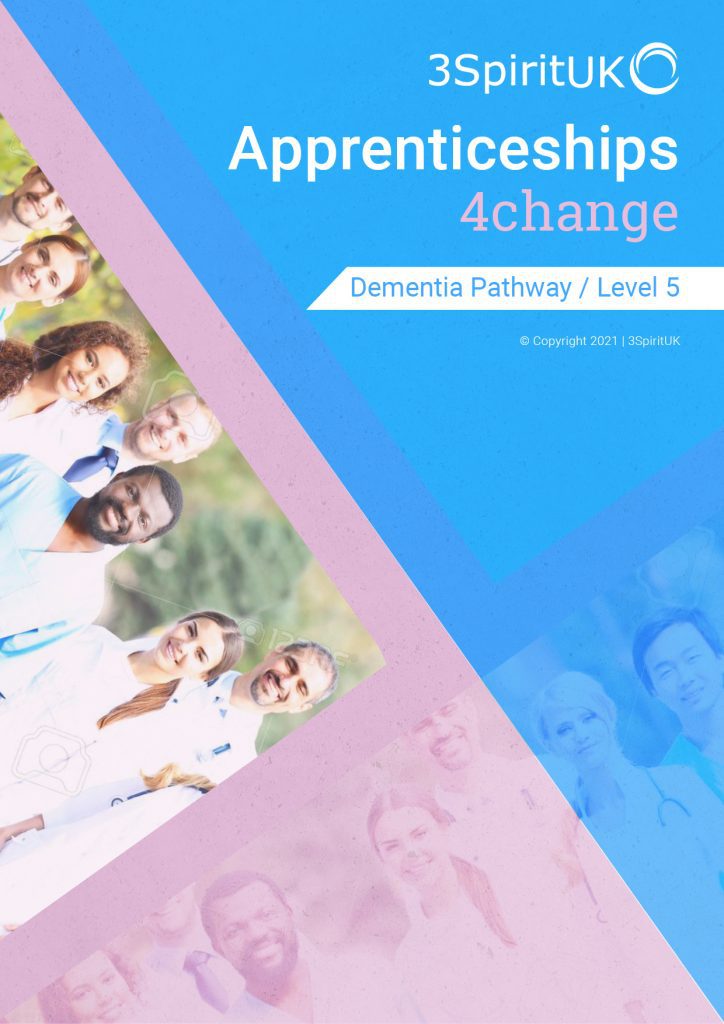Free Eventbrite Q&A Apprenticeship Events
Join us for a Q&A session about our newly developed Apprenticeships. Register here…
Healthcare Assistant Practitioner – Level 5 Dementia Pathway

Who is the programme for?
An Assistant Health Practitioner can work within the health or social care system and works under the general supervision of a Registered Practitioner. Assistant Practitioners can work in health services and social care.
This programme suits individuals that are either searching to develop their skills in healthcare, have a specific interest in dementia, or want to progress into Registered Practice, including nursing. The apprenticeship can provide credits into some Higher Education programmes aligned to professional registration.
Assistant Practitioners work at the level above Health Care Support Workers as their role incorporates extended clinical skills such as catheterisation, wound care and discharge planning.
This programme supports apprentices to recognise the role that community and individuals play in driving better health and wellbeing outcomes. It is designed for a future workforce, fundamentally driving practical skills in facilitating the personalisation and ‘strength based’ approaches in dementia care. The programme encourages apprentices to consider how they contribute to the system that supports people to stay well for longer, and how to make the most of the expertise of both individuals and communities.
How long will the programme take and what is involved?
This programme is delivered over 18-24 months. It incorporates the Apprenticeship Standard Health Care Assistant Practitioner but is extended to include a robust development programme for best practice in dementia care.
Apprentices are required to complete 20% off the job. Commitment is important, as the programme will be tightly structured. The following activities can be expected as part of the individual learning process:
- Attending virtual classrooms
- Contributing to forums
- Completing assignments
- Guided Reading
- Reflective diaries
- Shadowing other members of the team
- Participating in audits
- Attending meetings
Apprentices will meet with their assessors once a month to review progress and access support and guidance. Apprentices will also have access to communities of practice and will be required to contribute and learn from these communities as part of the assessment process. They will have the opportunity to collaborate and learn from peers undertaking similar pathways. Apprentices will be required to actively participate in virtual classrooms.
End point assessment:
There will be an external assessment at the end of the programme once the apprentice has achieved the ‘gateway’ requirements. This includes achieving the Level 5 Diploma for Assistant Practitioner in Healthcare.
End-point Assessment
The end point assessment includes the following components:
- A multiple choice and short answer test
- An observation of practice undertaken in the workplace
- A reflective journal completed by the apprentice and an interview
What will the apprentice achieve?
- Care Certificate
- Level 5 Diploma for Assistant Practitioners in Healthcare
- Level 2 English and Maths (if not completed prior to starting the programme)
- Dementia Pathway (see below)
Which virtual classrooms are included
The apprentice will also have access to the following virtual classrooms:
- Professional development
- Safeguarding adults
- Risk reduction in dementia
- Anatomy and physiology
- Perform and support others to perform physiological measurement
- Health and safety
- Medication and health
- Principles of developing a healthcare team
- Manage quality in health and social care
- Research in practice
- Leadership in dementia
- Equality, diversity and inclusion
- Ethics and Dementia
- Assessment and support planning
- Lead practice for communication
- End of life and dementia
In addition to the above, add-on modules are available, such as a programme in ‘Motivational Interviewing’ (MI) which teaches apprentices a set of communication skills that supports people to make changes to improve health outcomes. MI is a collaborative conversational style designed to strengthen a person’s own motivation for commitment to change.



